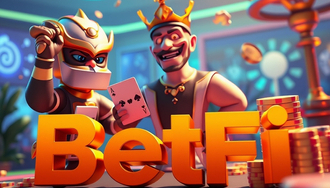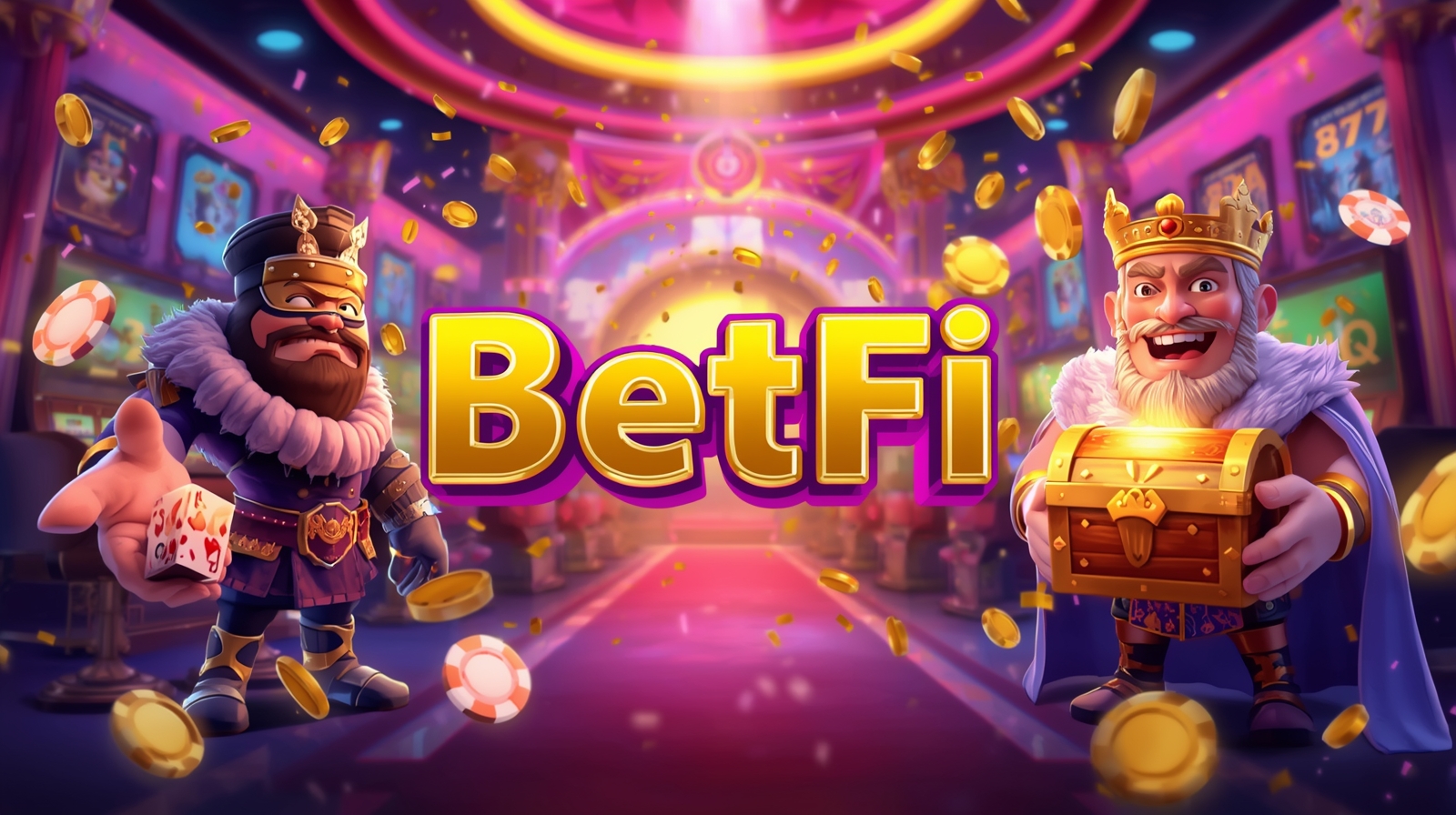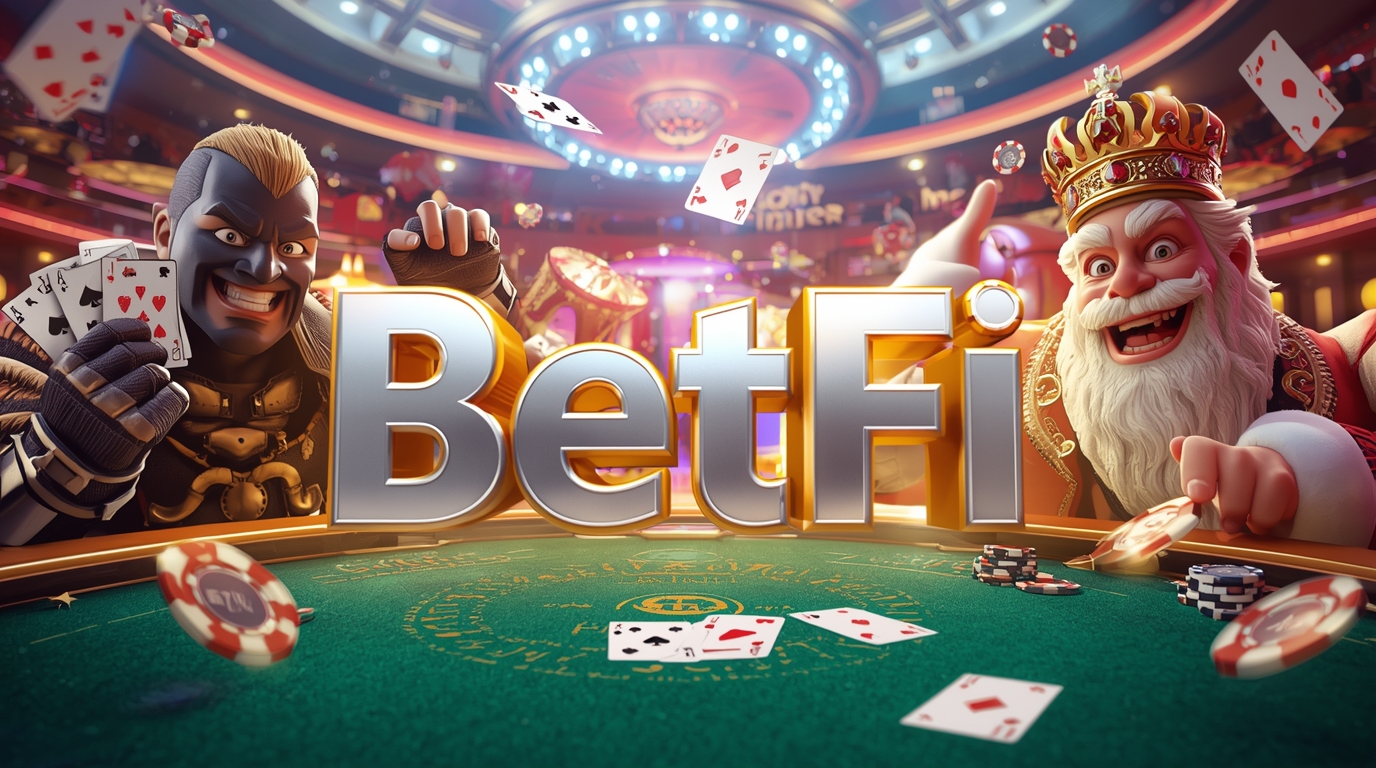BetFi Game Catalog vs Competitors: A Straightforward Comparison
September 26, 2025

The online gambling sector is changing fast. Crypto casinos are at the center of this shift, offering a growing game catalog that blends traditional casino titles with blockchain technology and new reward models. While many projects enter the market with similar promises, only a few attempt to rethink the fundamentals of how casinos should treat both players and investors.
BetFi is one of those projects. It aims to stand out with a guaranteed of not more than 97.3% Return to Player (RTP) for live casino games and not more than 95% for the rest of the casino games, and the BetFi game catalog reflects this with trading-style gameplay alongside traditional casino titles, supported by a token model designed around profit sharing and cashback rewards rather than being the currency used for betting.
What RTP Means and Why BetFi’s Promise Matters
Return to Player, or RTP, is the percentage of wagers a game is programmed to return to players over time. In the wider industry, most modern slots fall between 94% and 97%. Blackjack and baccarat can be even higher when played with the right strategy. However, many casinos still host popular games with much lower RTPs, sometimes dropping below 90%. This creates a gap between what players expect and what they actually receive.
BetFi’s decision to enforce not more than 97.3% Return to Player (RTP) for live casino games and not more than 95% for the rest of the casino games RTP across all titles is a clear statement. It simplifies the choice for players by ensuring that every game meets a baseline of fairness. While other casinos may offer certain high-RTP titles, they rarely apply a universal floor across their catalog.
See Also: BetFi Solutions
Game Selection: Quality and Innovation over Volume
Competitors such as Stake, Roobet, and Bitcasino offer vast libraries with thousands of titles from dozens of providers. This extensive game catalog includes everything from classic slots to live dealer tables and crash games. The upside of this approach is variety, but the downside is inconsistency: the mix often includes games with significantly lower RTPs or mechanics that are difficult to understand.
BetFi is taking a more focused path. Its game catalog will include:
- Casino standards such as live casino games, slots, roulette, blackjack, and baccarat.
- Derivatives Trading games, which borrow mechanics from short-term financial speculation and prediction markets like Stock Options and Futures.
These trading games are where BetFi seeks to break new ground. They allow users to engage with gameplay that resembles market speculation but within the structure of a casino environment. This could appeal to both traditional gamblers and those already familiar with crypto trading.
BetFi Coin ($BFC) Token Use: Not for Betting, but for Rewards

Token Use: Not for Betting, but for Rewards
A common question with casino tokens is whether they are used as the betting currency. In BetFi’s case, the answer is no. The BetFi Coin (BFC) is not the token players use to place wagers inside the casino. Instead, it serves as a utility and rewards asset within the wider ecosystem.
Its functions include:
- Profit sharing linked to platform performance.
- Holding and staking opportunities that allow holders to earn additional rewards.
- Rakeback and loyalty programs that return a portion of revenue to active investors.
- Discounts on fees and staking privileges for holders in higher tiers.
By keeping betting and investing separate, BetFi avoids the problem of tying everyday gameplay directly to token price volatility. Players can wager using in-platform game token, while investors in BFC participate in the platform’s success through rewards and profit distribution.
Investor Model: Cashback Instead of Price Ladders
Many token launches rely on staged presale rounds with rising prices to encourage early participation. BetFi has moved away from this structure. Instead, it has introduced an investor tier system built around cashback rewards.
This means that rather than buying early purely to secure a lower token price, investors are encouraged by the promise fixed cashback from their BFC presale investment, paid upon the casino launch in real USDT asset. Cashback rewards, combined with profit-sharing mechanisms, give token holders an incentive to stay engaged over time rather than sell quickly after launch.
For long-term investors, this shifts the value proposition from short-term speculation to recurring benefits tied to actual platform growth.
See Also: BetFi Casino and Games
How BetFi Compares with Competitors
Category | BetFi | Established Competitors |
RTP | Maximum of 97.3% Return to Player (RTP) for live casino games and not more than 95% for the rest of the casino games | 88%–98%, varies widely by title |
Game Catalog | Thousands of slots, table games, live casino games, baccarat, poker, sports games, derivatives trading games | Thousands of slots, table games, live dealer, some crash games |
Innovation | Trading-style games, player wager rakebacks, investor rewards | Large variety but fewer hybrid formats |
Token Model | Profit sharing, staking, cashback, fee discounts. Not used for betting. | Mixed: some tokens used for bets, others for governance or simple rewards |
Investor Incentives | Ttiered cashback rewards | Early-round pricing, staking bonuses, VIP loyalty schemes |
Advantages for Players

Advantages for Players
For players, BetFi’s most direct benefit is the guaranteed 95% RTP floor. They can enter any game knowing they are not at a significant disadvantage compared to other platforms that quietly lower payout percentages.
The inclusion of trading games adds variety that most traditional casinos do not offer, creating a new form of gameplay that blends speculation and entertainment.
Advantages for Investors
For investors, BetFi’s structure avoids the pitfalls of presales that rely on rapid price escalation. The cashback model rewards participation and loyalty, while staking and profit-sharing mechanisms connect token value to real platform activity.
Because BFC is not used for day-to-day betting, its price is not subject to the same volatility pressures that can affect tokens directly tied to gameplay. Instead, its value depends on the growth and sustainability of the casino itself.
Conclusion
BetFi is not aiming to be the largest casino by game count. Instead, the BetFi game catalog is focused on being the fairest and most innovative by setting a good maximum RTP, offering new trading-style gameplay, and introducing a token model built around real word asset value through profit sharing rather than short-term speculation.
BetFi is positioning itself not as just another platform but as one that puts fairness and long-term sustainability at the center.
To understand the project further, you can visit the official resources:
- Presale Website: presale.bet-fi.io
- Whitepaper: whitepaper.bet-fi.io
